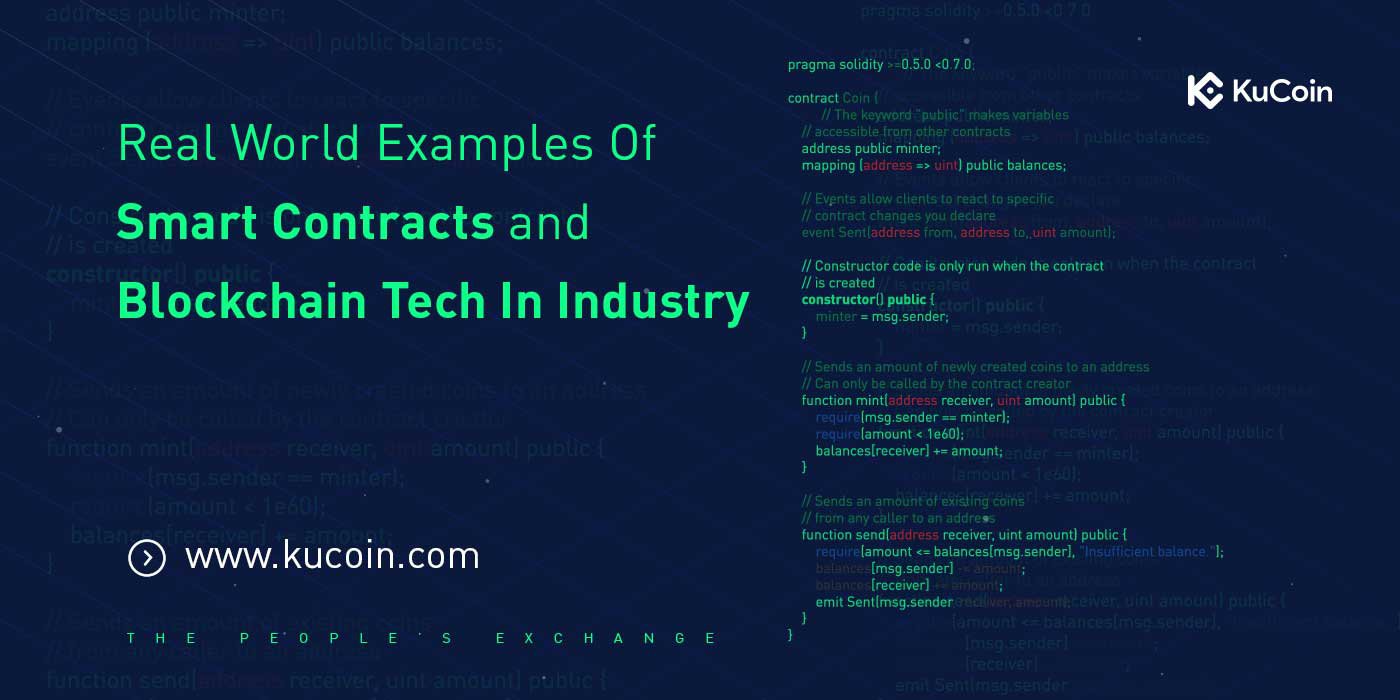Real World Examples Of Smart Contracts And Blockchain Tech In Industry
[ad_1]

Many people may be familiar with some smart contract use cases. Technological advances such as these have always disrupted different industries and lead to a reshaping of the workforce and its expectations. Throughout history, whenever innovation has answered the needs of businesses, it has led to an outcry from some and rejoice from others.
Read more about this post on KuCoin Blog:
[https://blog.kucoin.com/real-world-examples-of-smart-contracts-and-blockchain-in-industry-kc-of](https://blog.kucoin.com/real-world-examples-of-smart-contracts-and-blockchain-in-industry-kc-of)
[ad_2]

Blockchain really changing real estate. Because with this technology in real estate, online real estate markets and platforms are no longer simply a means of connecting real estate buyers to sellers. The online real estate market can be converted into something more like a stock market. So, rather than just allowing buyers to find sellers and vice versa, online real estate markets will be able to fully handle real estate transactions online.
It’s pretty obvious that blockchain is useful for much more than cryptocurrency transactions. From authenticating online reviews to keeping health records safe and supply chain management, blockchain has begun playing a vital role in our day-to-day lives and will continue to do so moving forward.
Smart contracts represent special algorithms for the mechanization of agreements, including deal making processes. For example an agreement enables individuals to sell realties, trade shares, cash, reports or any proprietary. And also, one of the significant features of Smart contracts, is that you won’t have to use middle person services, for example, specialists, public accountants, operators and so on just to make a transaction.
By using smart contracts, telemedicine providers can bring more security and privacy when sharing patient information and other clinical data.
Are smart contracts enforceable?
Blockchains run on digital networks. Data transmission in such networks is equivalent to copying data from one place to the other, e.g. in the cryptocurrency domain this is equivalent to copying digital coins from one user’s electronic wallet to another’s. The principal challenge resides in the fact that the system needs to ensure that coins are only spent once and there is no double-spending. A traditional solution is to use a central point of authority, such as a central bank, who acts as the trusted intermediary between transacting parties and whose job is to store, safeguard the valid state of the ledger and keep the records up to date. If multiple parties need to write in the ledger at the same time, a central authority also implements concurrency control and consolidates changes in the ledger. In several occasions, central management may not be feasible or desirable, as it introduces intermediary costs and requires network users to trust a third party to operate the system.
You have probably heard that blockchain technology and “smart contracts” are going to revolutionize our lives. But there’s a problem: before smart contracts can do anything really useful, they need a reliable way to connect with events in the real world—and that has proved impossible so far. This is the so-called “oracle problem,” a technological challenge that is still hampering any chance that blockchain will break out and become a part of our everyday lives.